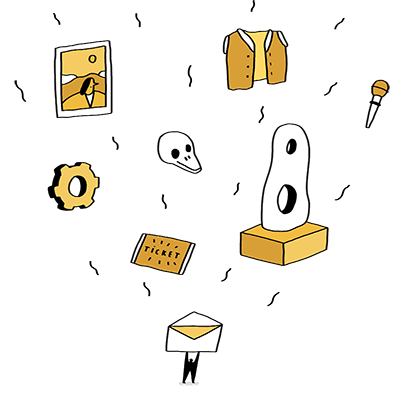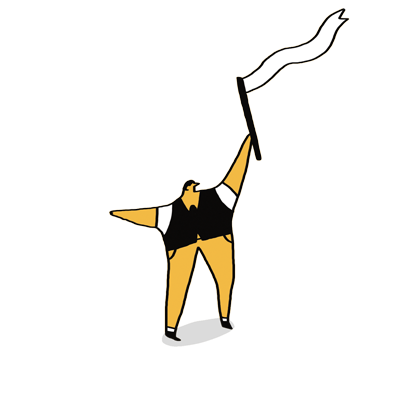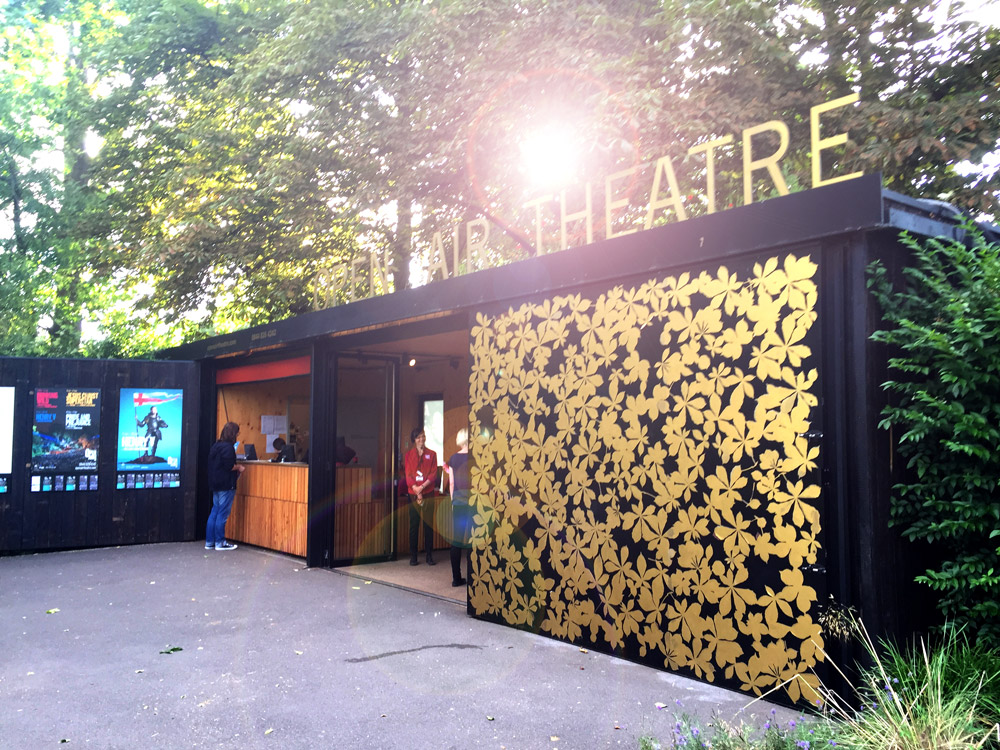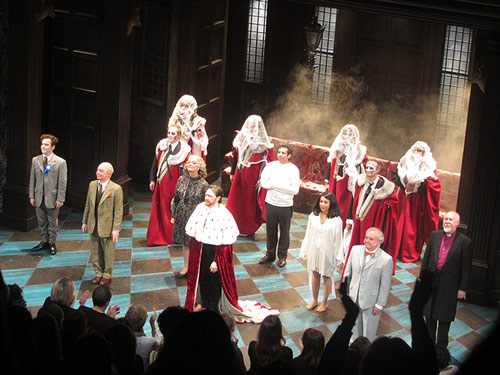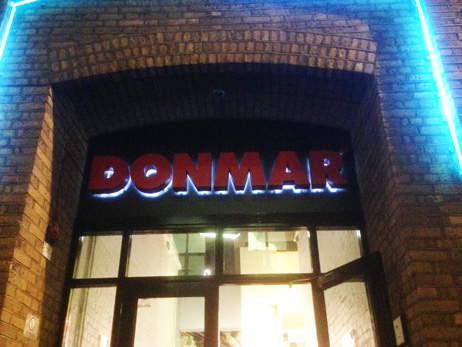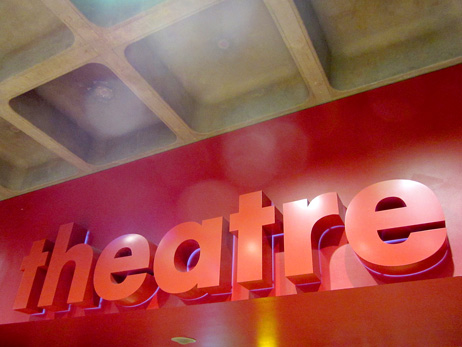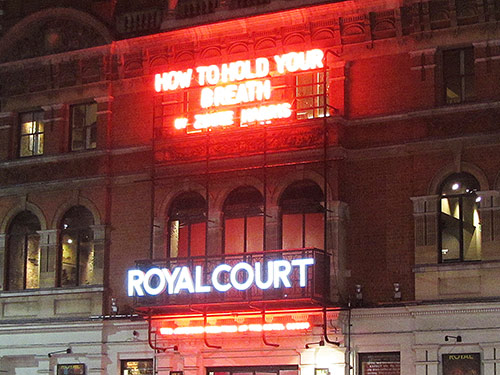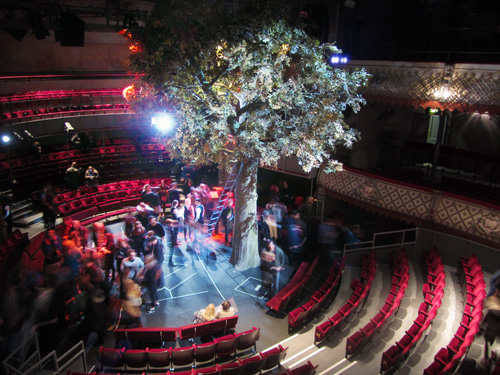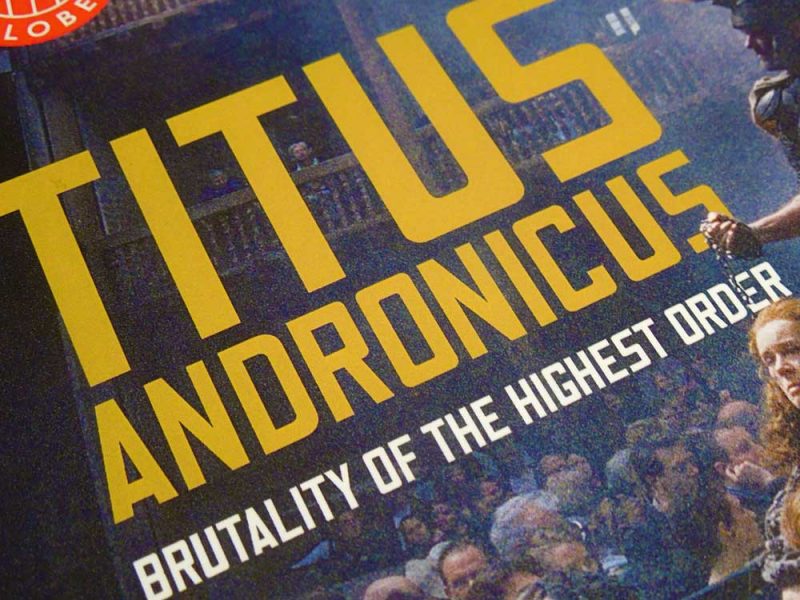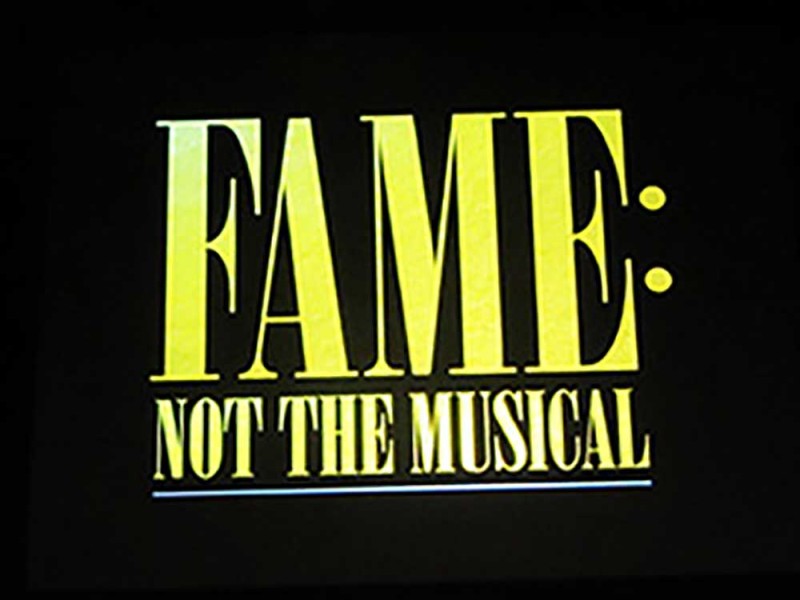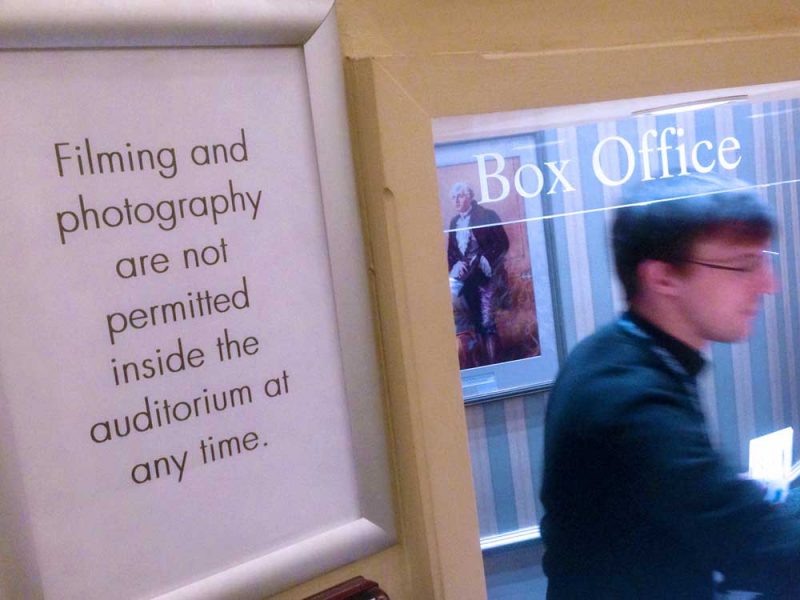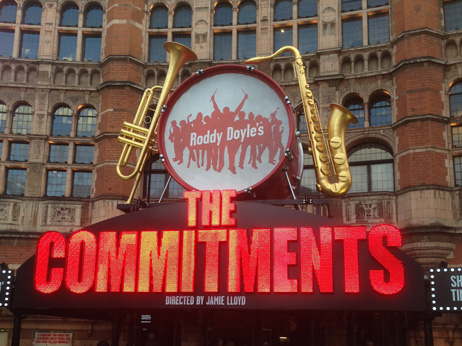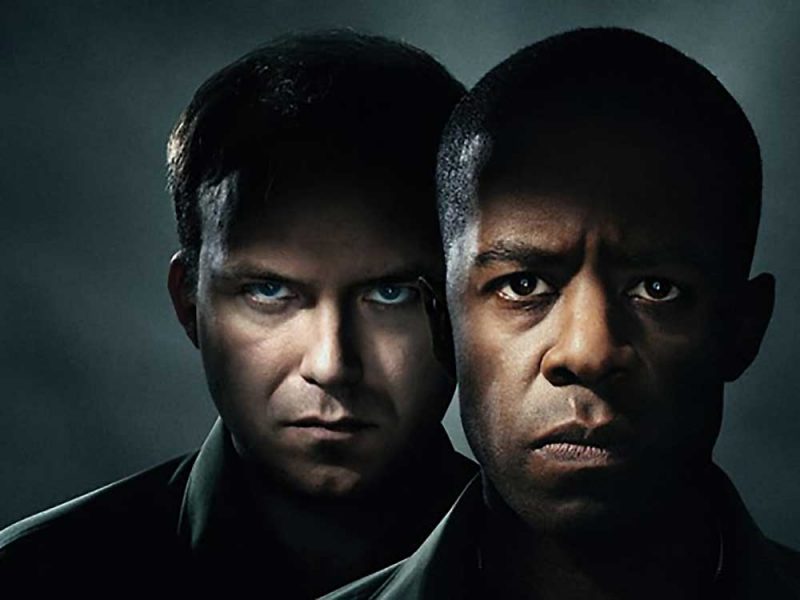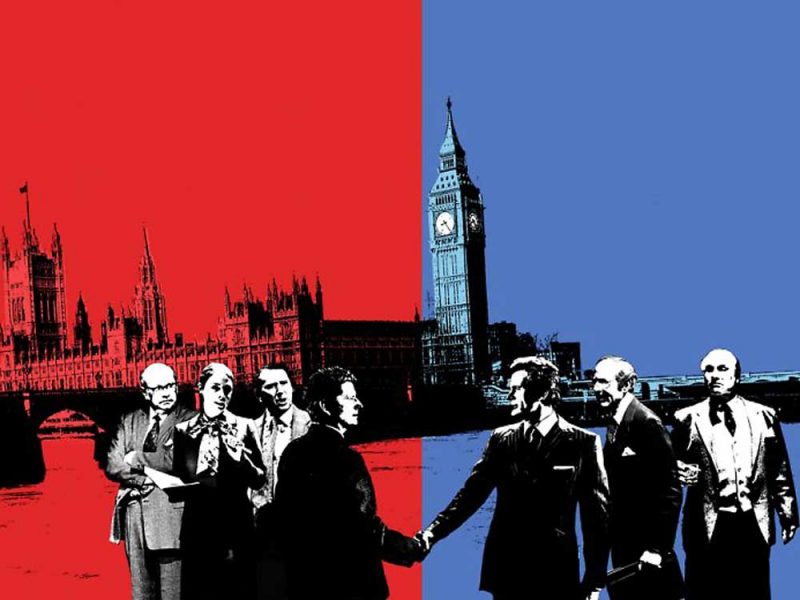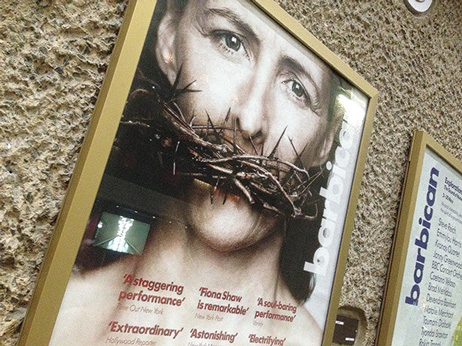Should we be annoyed with people fiddling with their phones at the theatre, or will a more relaxed environment make venues more welcoming and vibrant?
What’s wrong with smartphones at the theatre?
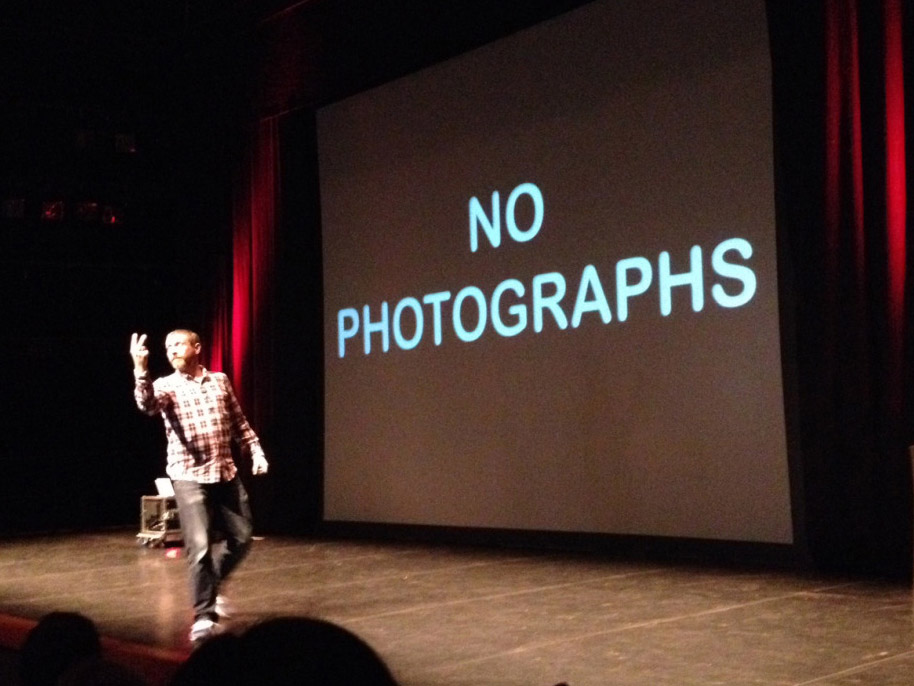
Last night I went to the Regent’s Park Open Air Theatre with my eldest son. We went to see Michelle Terry being brilliant as Henry V in a performance that almost held my attention throughout.
‘Almost’ because, five rows in front of me, a woman spent the entire play fidgeting with her mobile phone. She texted, scrolled through emails, took photos, posted them online, rested the lit-screened device on the rail in front of her for a while and then picked it up and cycled through the whole routine again.
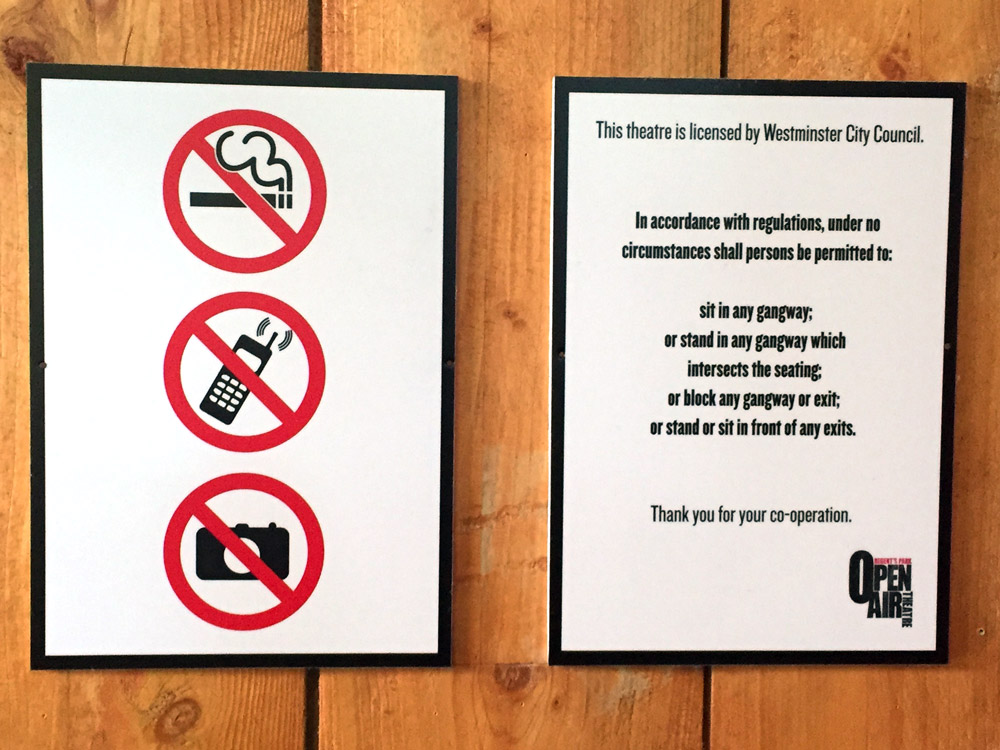
As the metaphorical curtain came down (it’s an open amphitheatre with no rigging or curtains) she clapped enthusiastically as if she’d had a wonderful evening.
And so did I; it’s a great production and the cross-gender casting works brilliantly.
But then I did something I’ve never done before… I raced out of my seat, down the steps and over to where she was still gathering her possessions. I hadn’t really expected to reach her so I’d not thought through my next move.
“Excuse me, I just wanted to let you know how incredibly distracting you’ve been throughout the play; you’ve really upset my enjoyment” were the words that came out of my mouth.
“I’m sorry, I wish you’d said something earlier” her reply.
There was probably a witty, devastating repost hanging in the air between us but it eluded me so I turned and left. When I looked round to find my son he wasn’t there.
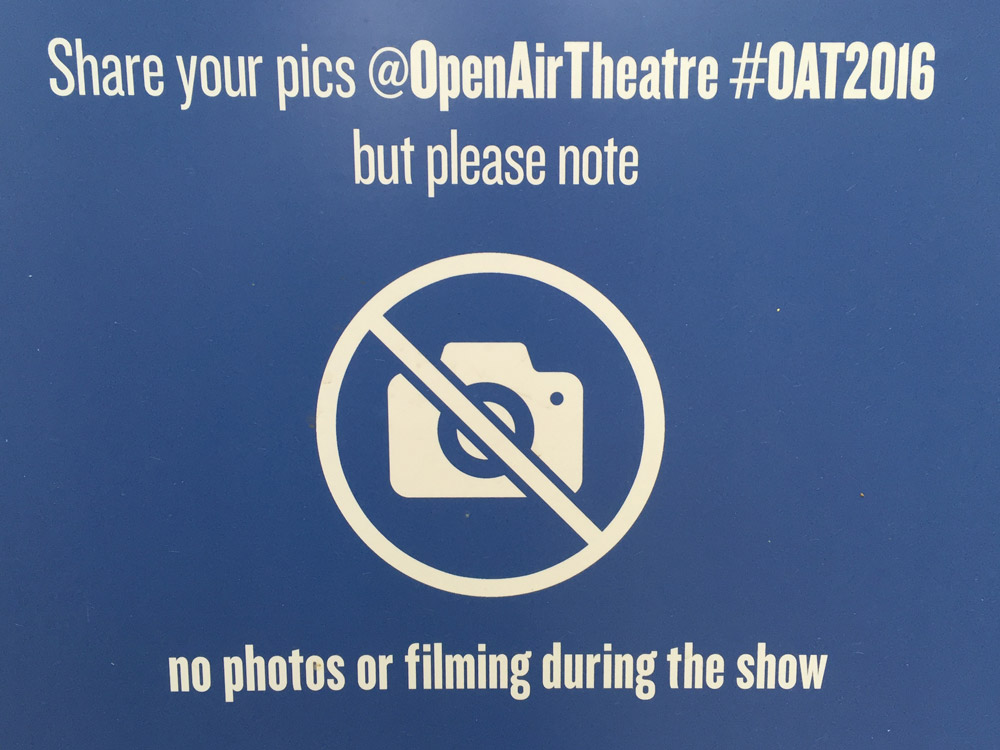
Don’t worry, he’s 21 years old so it’s not like I’d abandoned a child. But where was he? I waited outside, and waited… and avoided eye-contact with the woman as she walked past me.
And then, from another doorway he appeared.
“Where have you been?” I asked.
“Oh, I went to tell a man off for using his mobile. You rushed down the steps, where did you go?”
We’d independently decided that tonight was the night we’d had enough, tonight was the tipping point, our collective ‘Falling Down’ moment.
Why? Why were we so upset? Shouldn’t it be OK for people to be relaxed in that environment; and if using your device is integral to who you are, then isn’t it OK to carry on doing so during a show?
From a reasonably lofty vantage point (and, yes, I note the metaphor and irony) we could see the whole audience: people were chatting, snogging, and sleeping through the first half.
After the interval, the sun was down and mobile phones twinkled like stars. There were occasional checkers, posters, texters in full-flow discourse, photographers and videographers; most tried to be discrete but some just carried on as if they were at home on the sofa, in front of the box.
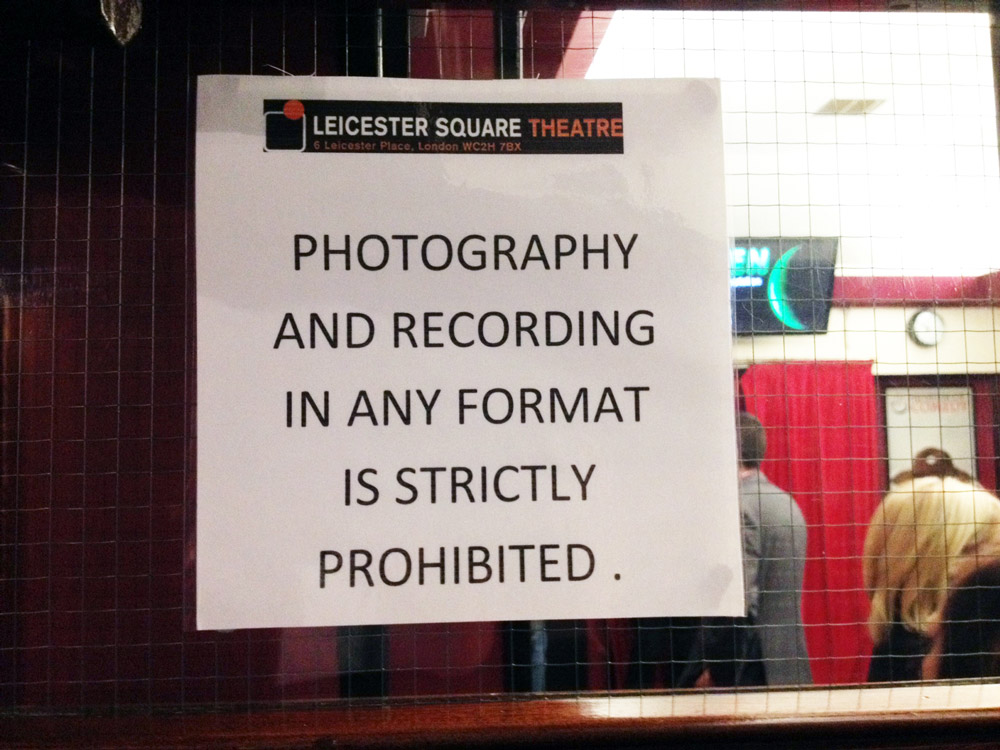
Sign at the West End’s Leicester Square Theatre
It was remarkable. But had these people really ruined our evening or were we just making a fuss?
It must be an expensive venue to run so they supplement the (already high-priced) ticket income through catered corporate bookings, sales of hampers and picnics, and alcohol from the ‘West-End’s longest bar’.
This was a merry but relatively civil, middle-class audience, here for the experience and the bragging-rights as much as the play. There was a lazy summer atmosphere, with Champagne corks literally popping, in the amphitheatre, right before the metaphorical curtain-up.
Given that Shakespeare wrote for much bawdier audiences, where the actors had to fight for attention, is it right that we demand silence and stillness?
Given that Victorian theatre was a riotous affair where people went to be seen as much as to see, why do we demand total concentration?
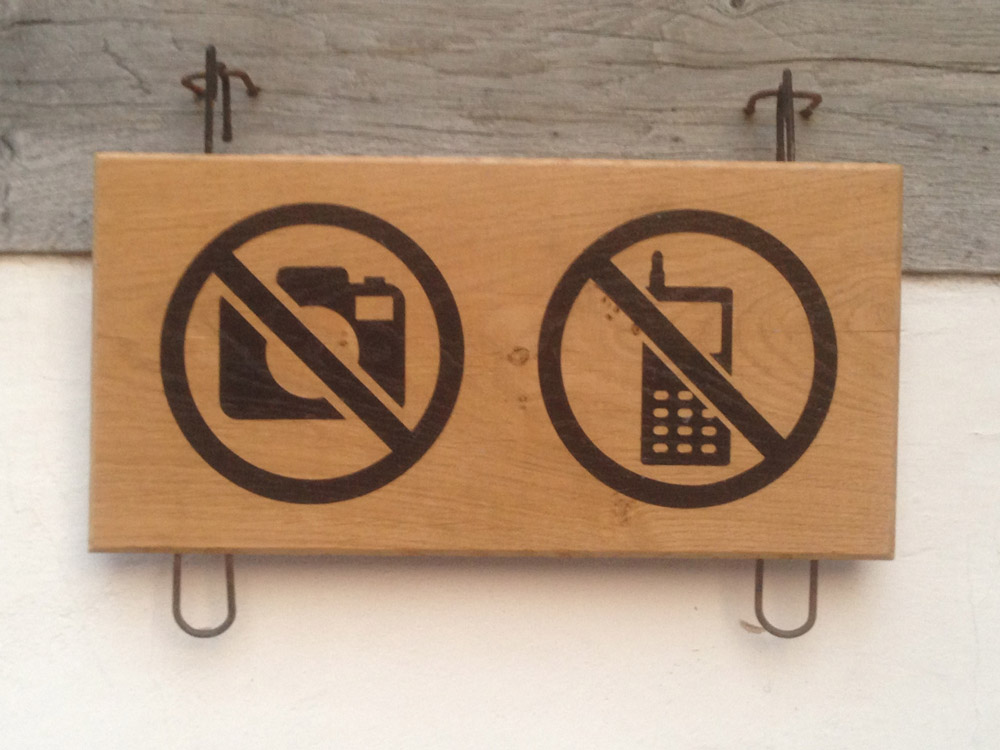
Olde Worlde sign at Shakespeare’s Globe
Might we have reached a tipping point where purists and theatre-snobbery needs to give way to a bit more mischief? Might that be a really good way of breaking down barriers and bringing more people into our art-houses and cultural institutions? Or have we developed our theatrical art in such a way that it’s impossible to perform in anything but respectful silence.
I remember being at a dance show a few years ago. It was an energetic and acrobatic performance, mixing different styles of street dance in a reinterpretation of One Flew Over the Cuckoo’s Nest, Insane in the Brain.
In the audience was a cacophony of about 40 young people, I’m guessing they were from a performing arts school or somewhere that felt comfortable in a theatrical environment.
They did not settle comfortably in their seats. They passed drinks and food, they laughed, joked and exclaimed; they reduced to a gentle murmur during the dialogue and bounced along to the music. They could not contain their excitement.
And that sense of joy was utterly contagious. I’ve rarely enjoyed a performance as much. The show was great but I know that my evening was enhanced, feeding off the excitement of that audience.
It was a few years ago, before the selfie, before the need (or perhaps the wherewithal) for constant updates. Before the cult of FOMO and YOLO. I wonder if that experience would be different now.
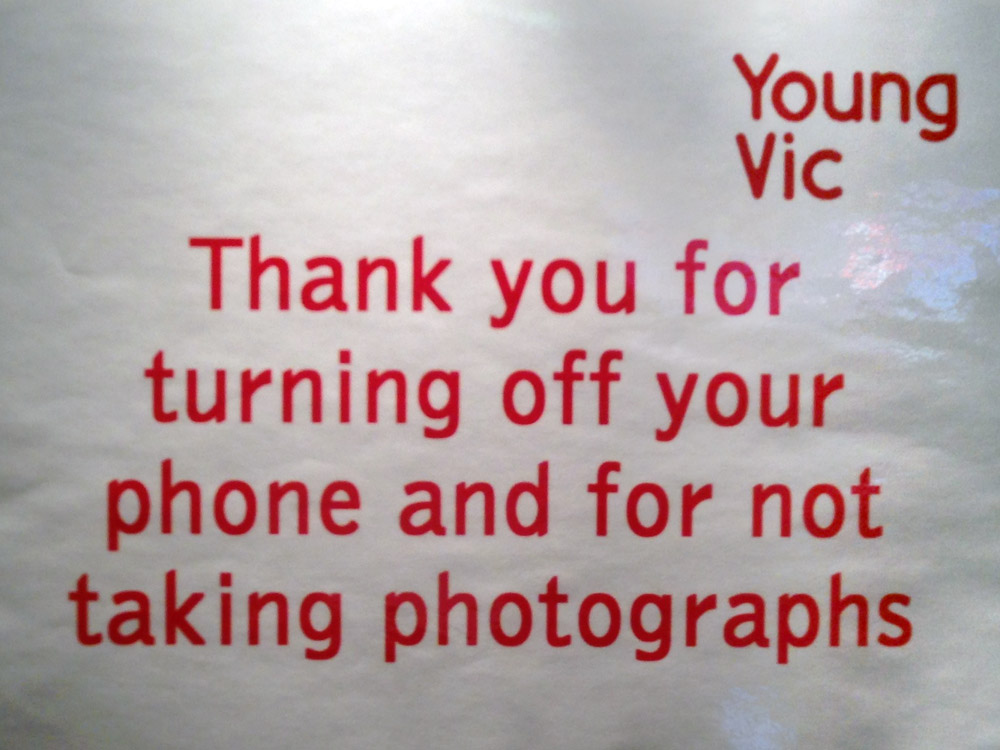
Sign at Young Vic Theatre, near Waterloo
I have similar feelings about music. I love the convenience and facilities of a large arts centre. They are like cultural cathedrals and, for some shows (and I probably mean the kind of classical music that they were built to house) it feels right to sit like a congregation. But for others, that same polite atmosphere and comfortable seating can put a barrier between artist and audience.
If we’re lucky, one brave (or challenged) soul starts dancing in the aisle, a few people tut but it gives a nod to half a dozen others to join them. A steward moves in to usher them back to their seats but by then we’re all feeling that it’s OK to tap our feet. Then the band hit their stride, and we collectively rise to our feet. The ushers are powerless and we’re revelling in our gentle revolution; it’s going to be a great gig where the performer connects with their audience.
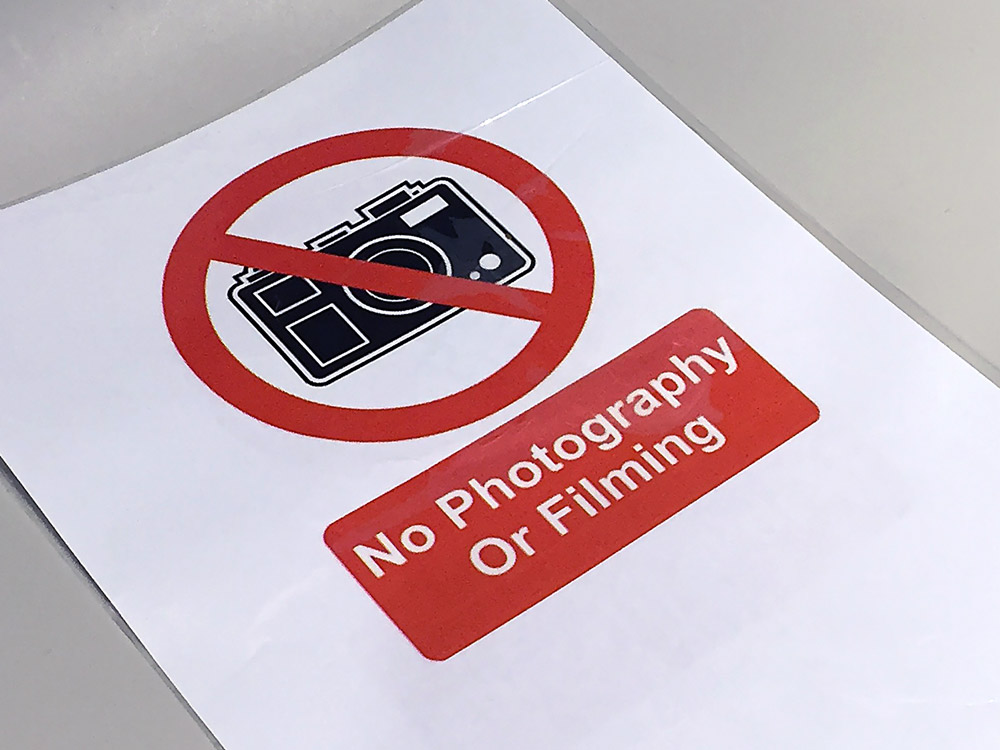
Sign at the entrance to Stewart Lee’s show at the Royal Festival Hall
But, despite their intimacy and atmosphere, I think twice before booking for standing venues these days. Not because I’m old and ache and don’t enjoy the mosh-pit, but because I am too impatient with people using their phones, around me.
Don’t get me wrong, I don’t object to the occasional photo and I don’t even mind people recording the audio (some of my favourite tapes, from the 90s, were bootlegs of gigs I’d been to, and they definitely encouraged me to be loyal to the band and to buy their legitimate recordings).
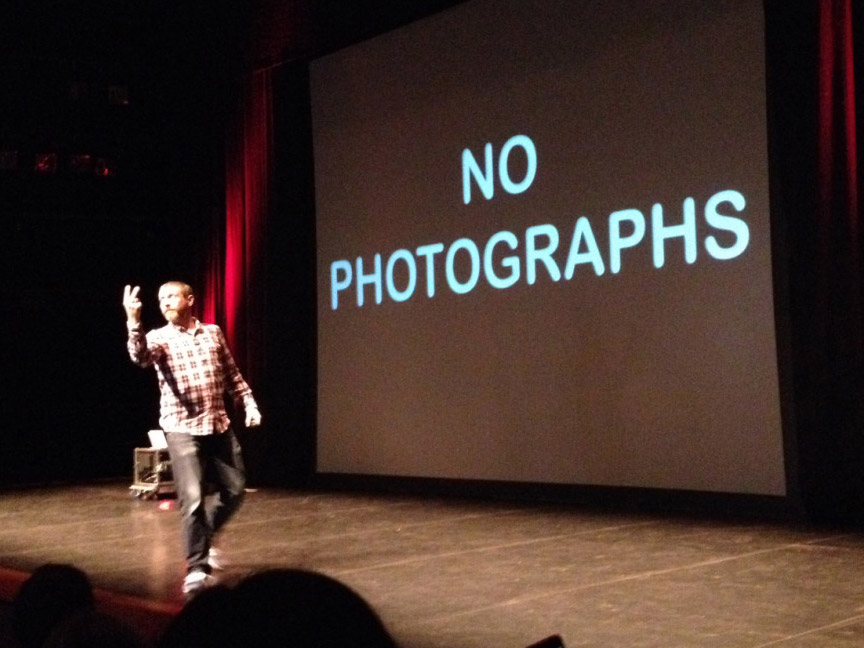
Taken, with Dave Gorman’s permission, during his show at the Southbank Centre
The thing that drives me mad is the people who are making a show of having ostentatiously ‘good time’. The people who take photos with the flash on, phone their friends to share the atmosphere, hold their screen aloft for minutes at a time, talk through the ‘boring’ songs, and tell me to “lighten-up, mate” because I’m evidently unimpressed by their exaggerated hugging, jumping and singing along to the “choooon”.
I know it’s me that’s the problem in that situation. They are having a great time and my desire to see and listen to the band feels antiquated and stuffy.
There really is no pleasing me, is there? I want atmosphere and engagement but as soon as people start enjoying themselves too much, I start to bristle.
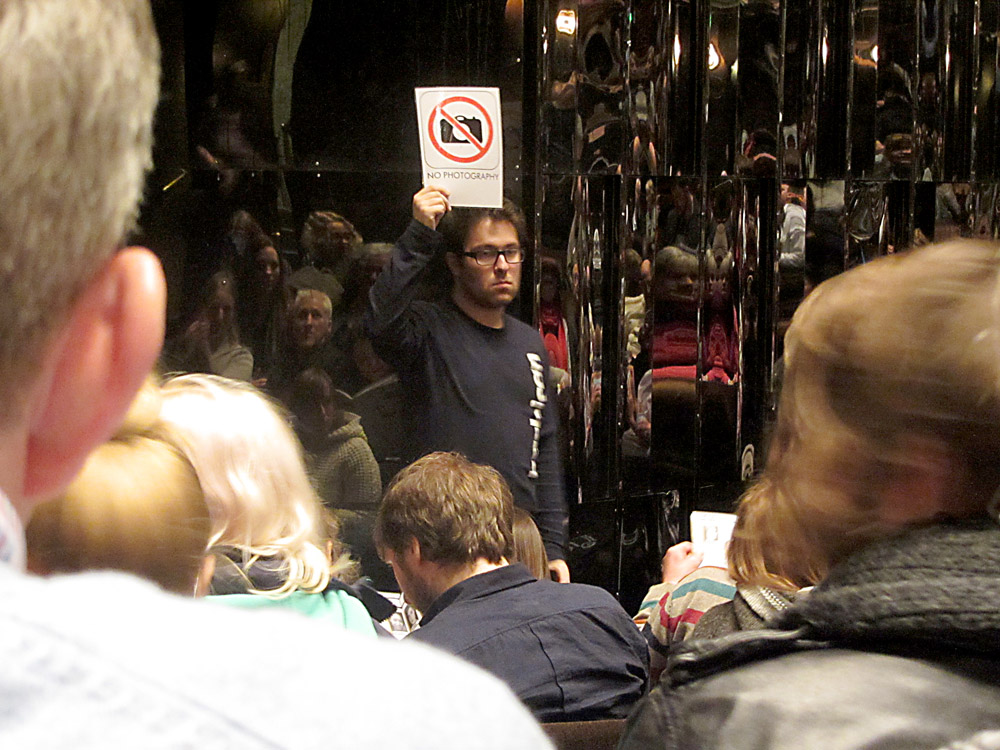
An usher in the Barbican theatre. I asked his permission to take this photo
And that leads me back to theatre. Theatre is different, isn’t it? It’s about respect, isn’t it? On other stages, the performer wants our interaction but at the theatre they demand our respectful silence.
In other performances, the act is being themselves (or a version of themselves) but in theatre, the actor is engaging the audience as someone else. They need us to be respectful of that because they can’t adapt their performance to suit the mood of the room or the misbehaviour of the audience.
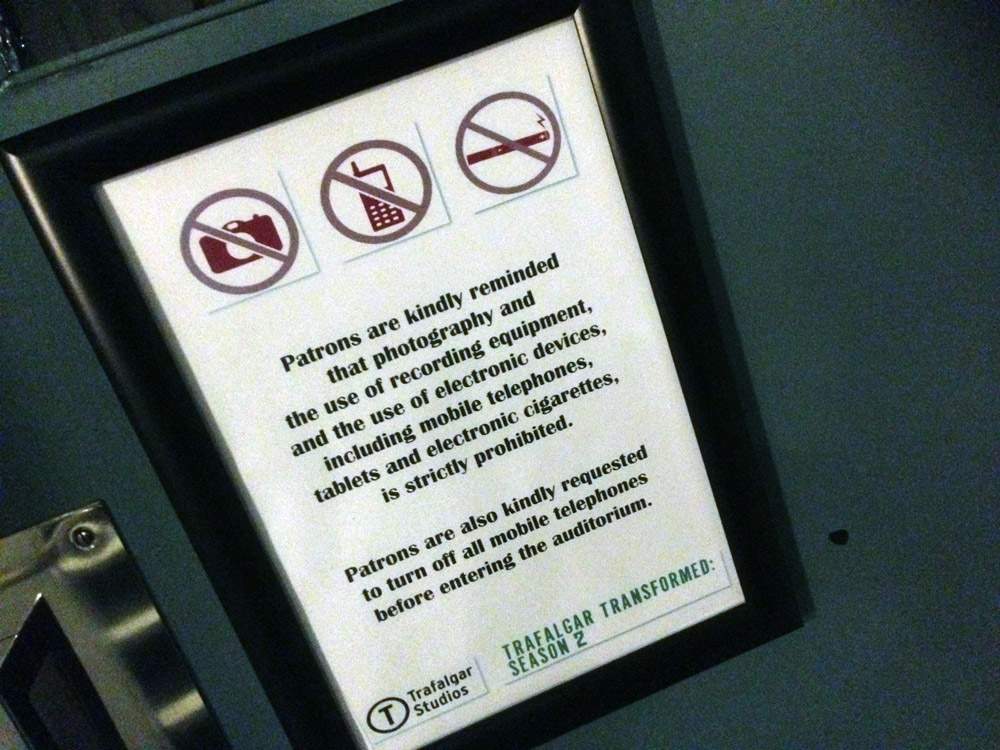
Sign at Trafalgar Studio in Whitehall
At least, that’s a little bit true. They may need us to be quiet and not ‘put them off’ but they also need us to be there, acknowledging and (correctly) reacting with a theatrical laugh or collective intake of breath. They need us as much as we need them. Otherwise it stops being an interaction and becomes more like passively watching a film (and I could write volumes about my anger towards people who use their smart-phones in cinemas).
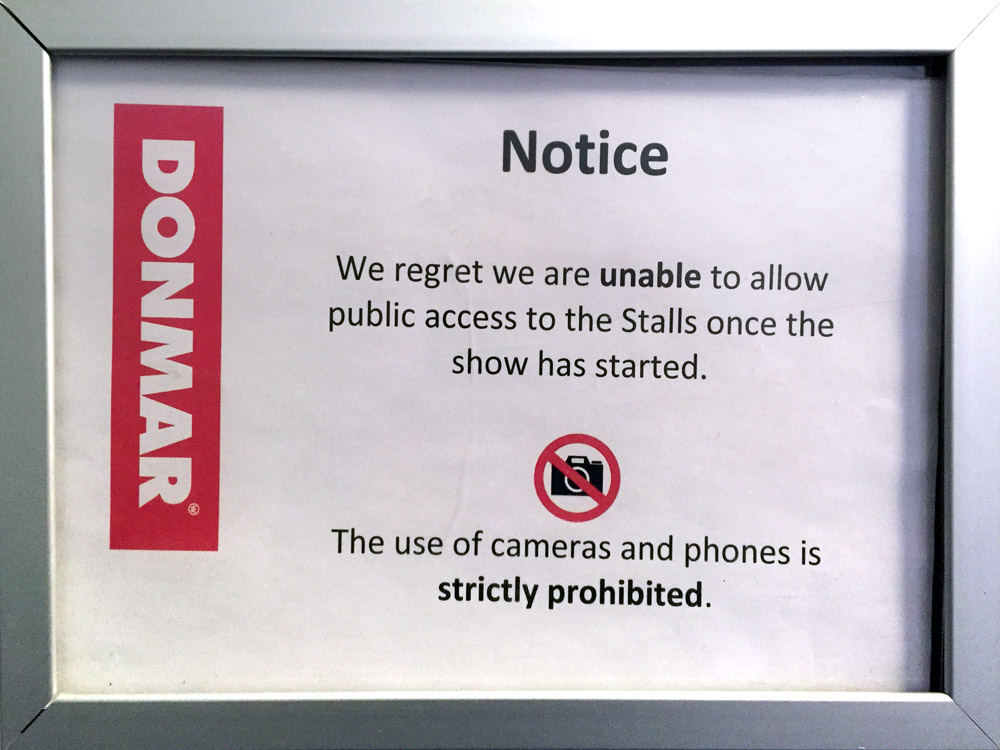
I went to a matinee the other day; it felt thrillingly indulgent to be in a darkened theatre during the middle of a working day. As I looked around the audience I realised that I was the youngest person in the room – and I’m almost 50.
The show was Brian Friel’s Faith Healer, at Donmar. Brilliantly written, intelligently staged, with outstanding performances – Stephen Dillane was mesmerising.
He came on stage and immediately broke the fourth wall (actually, he broke the second and third too, as the Donmar stage is surrounded on three sides). Through the voice of Fantastic Frank Hardy, Stephen Dillane tried to engage and put us at ease. His appeal was met with well-behaved silence.
The actors played their parts. The always brilliant Gina McKee as Frank’s wife, Grace, and Ron Cook as his Manager, Teddy. But beyond the stage, the space was almost devoid of atmosphere.
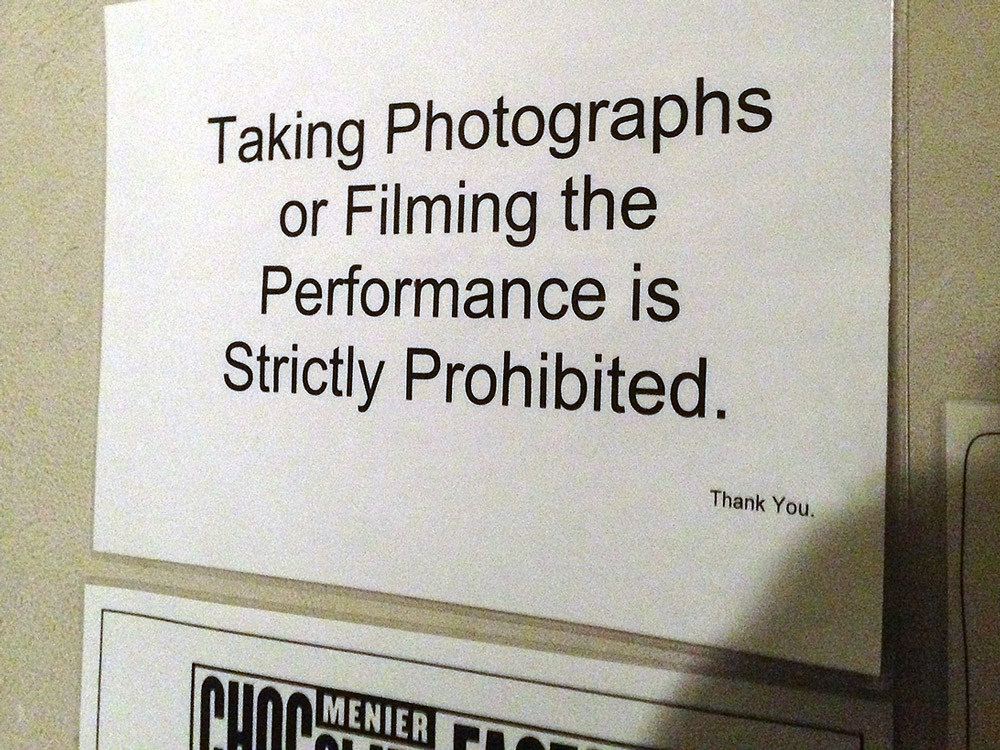
Sign at Menier Chocolate Factory near London Bridge
The play finished without a crescendo or a satisfying return to the root key, which I always feel is a little awkward for the actors and audience. Some of us started to tentatively clap, most people weren’t sure and didn’t want to be embarrassed by getting it wrong; the actors came back on, we all clapped a little harder (and were joined by those who’d just woken up), the actors wandered off, the lights went on and it was done.
I wanted to stand and whoop and stamp my feet and let the actors know how much their performances had moved me. But I felt constrained by convention and stifled by the yawns of those around me.
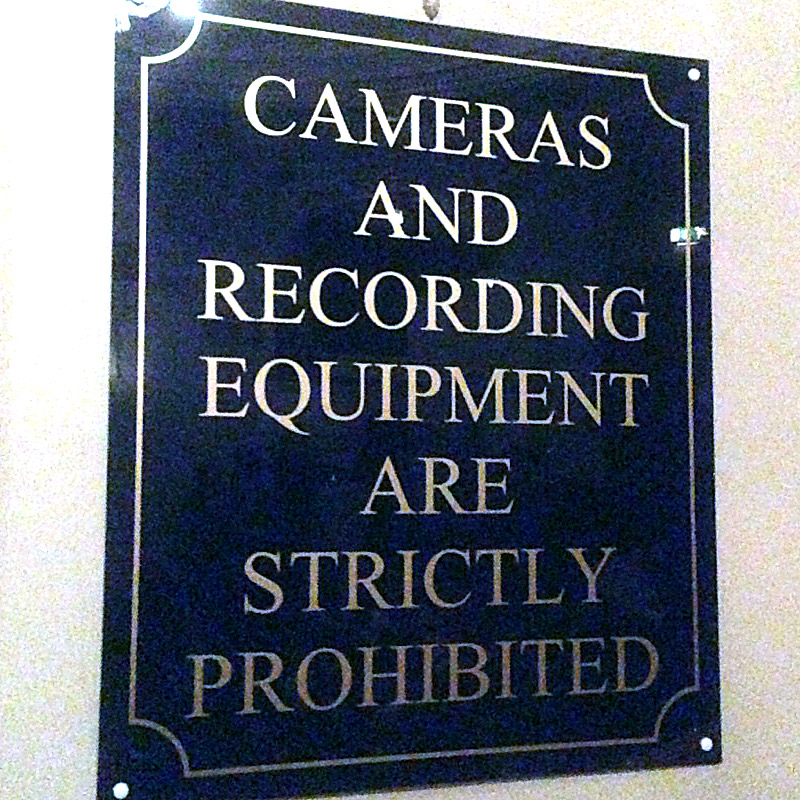
Sign at the West End’s Ambassadors Theatre
As I shuffled along behind my stooping and stumbling elders, I listed in to their commentary… they saw it as an intellectual exercise, a body to be dissected. Nobody spoke about feelings or emotion (other than how sleepy they felt, having dozed a little through the second half).
Theatre shouldn’t be like that. But how can we avoid it if we make it exclusive, through pricing or stifling conventions?
I don’t think it’s just an age thing. The Open Air Theatre at Regent’s Park was full of middle-aged people behaving ‘badly’, and I’ve been to many West-End shows where older people have been selfish, arrogant and wilfully bloody-minded.
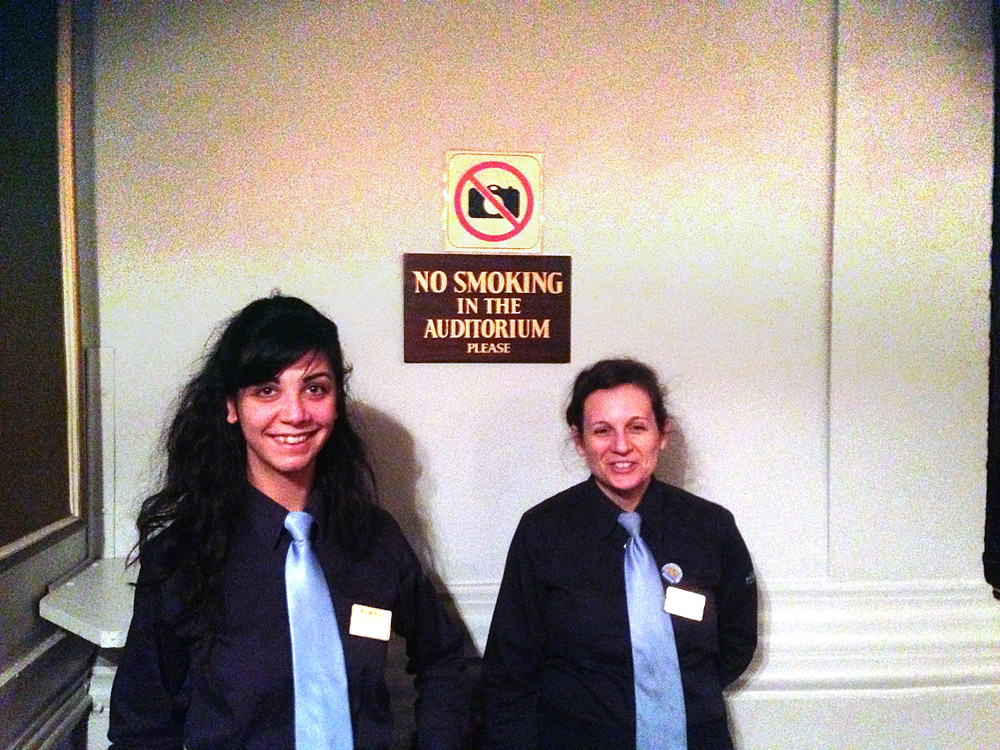
Ushers at the West End’s Vaudeville Theatre
I don’t think there is one answer but I have some suggestions for steps in the right direction.
Firstly, I think you need to be clear about why you have guidelines for certain behaviours. Maybe an announcement from the stage alongside whichever ‘please turn your mobile off’ message you are using.
“We actors are playing a part, we’d love you to play your part too; we thrive on your enjoyment and welcome laughter, tears and applause. But we are put off if you are distracting to us or your neighbours. It’s particularly noticeable if we see the light from your device, shining in the darkness of the auditorium, or if we hear a ring-tone or a vibration, so please suspend those distractions for the next 3hrs as we immerse ourselves in the alternative world of our play”
Obviously, the ideal would be to get your lead actor to deliver the message (maybe even with an invite to get the photos done then and camera phones put away). But how many actors would want to do that just before going on stage?
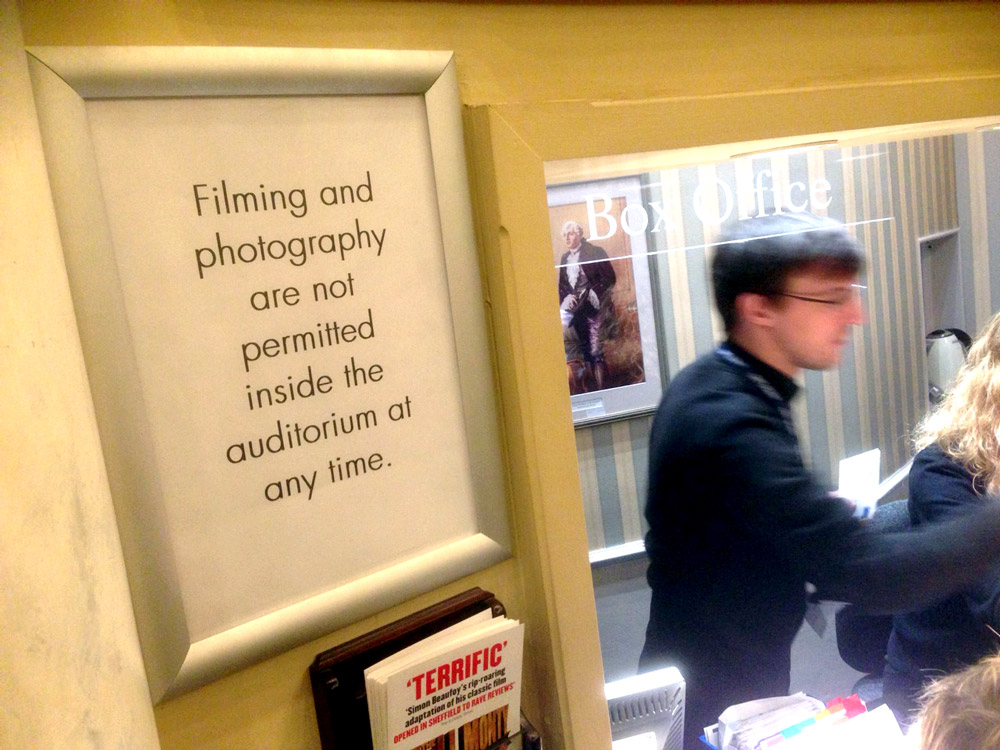
At the Wyndhams Theatre box office
Secondly, be clear about timings. It’s not enough to print the running time in a programme (that costs £5 and if full of advertising and little content) – post it by every doorway so everyone has the chance to mentally set aside that time and relax into the performance.
Thirdly, make (lots of) images available, for free, to share. You won’t stop people from taking selfies but you could curb the number of surreptitious snap-shots if you freely distribute lots of free images for people to use (immediately) on their blogs and social media. Announce that they are available and maybe find a technical way of delivering them directly to people who tap their phones on a device on the way out, or offer a dedicated web link for an hour, straight after the show.
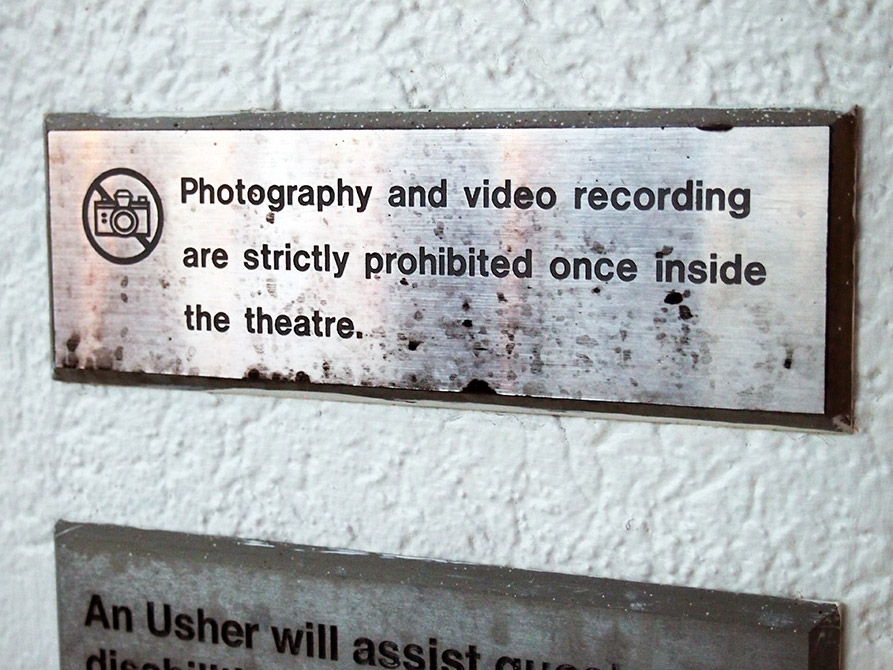
On the wall at the Cirque du Soleil theatre in Florida
And, if possible, include shots of the venue, the backstage area, the dress rehearsals, the actors and the set (yes, stop being precious about the set, especially when you’ve already released production shots to the press).
Finally, and this will be the most difficult, make recordings cheaply available to ticket-holders, as they leave the show.
It’ll be difficult but it can’t be impossible. There are plenty of examples in the rock music world. In my experience, Jack White’s various bands have led the way.
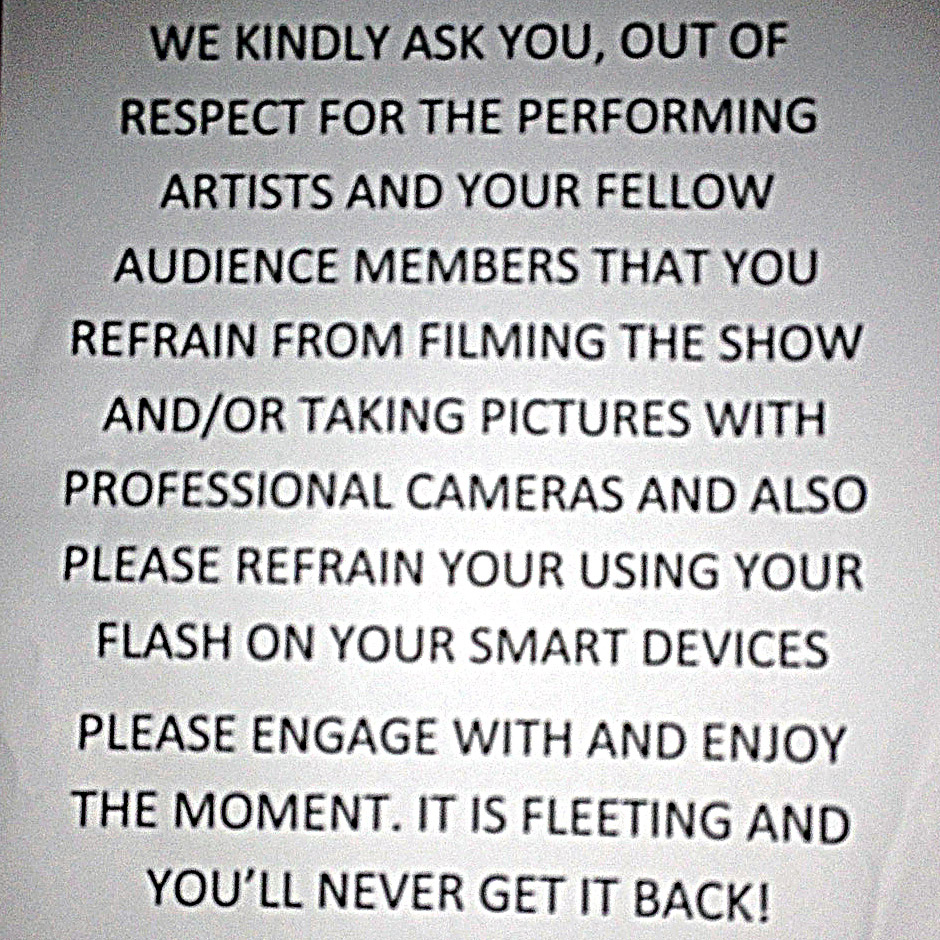
A few years ago I saw his band, the Raconteurs, at Brixton Academy. As we left the venue they’d employed a company with banks of machines generating a live recording of the show we’d just seen – we could buy a CD (it was a while ago), a USB stick or a code to download it at home.
At the same venue I’ve also seen security people using laser-pointers to shame people into putting their devices away (or maybe even destroy their camera phones); I’ve seen a similar approach used in a theatre but only during a lively performance where it isn’t too distracting.
At the O2, the very home of the mobile phone, Jack White began his set with an appeal to the crowd – we have professional photographers and video makers here, we are making the whole show available online. So, instead of looking at us through a 3 inch screen, worrying about the quality, why not share this great evening with us, in real life. Oh, and if we see anyone filming, we’ll confiscate the camera and delete the footage.
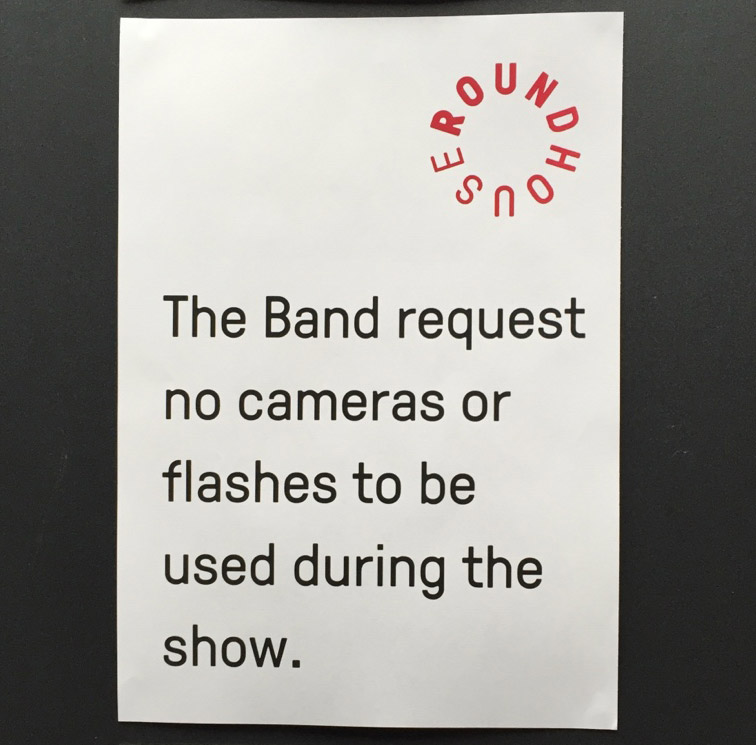
Sign outside the Roundhouse auditorium during Radiohead’s concert
Of course, you don’t have to record every performance – people just want clips to share and moments to add to their phone to show-off to friends or to add to their blog and Facebook page. If you give a little you get a lot back. People will be loyal to your show or venue; they will tell all their friends, and they will buy more tickets and merchandise.
So, thinking back, was I too harsh, telling off that woman, last night? No, absolutely not, she wasn’t just a bit distracting, it was one of the most selfish displays I’ve ever seen at the theatre.
But in a relaxed atmosphere, where people might not be used to the social conventions of a theatre, and they’ve been heavily encouraged to spend time at the bar beforehand, perhaps we could be doing more to make those boundaries clear. And to explain why they exist, and why live theatre is different to having the TV on in the background whilst you’re chatting with your friends.
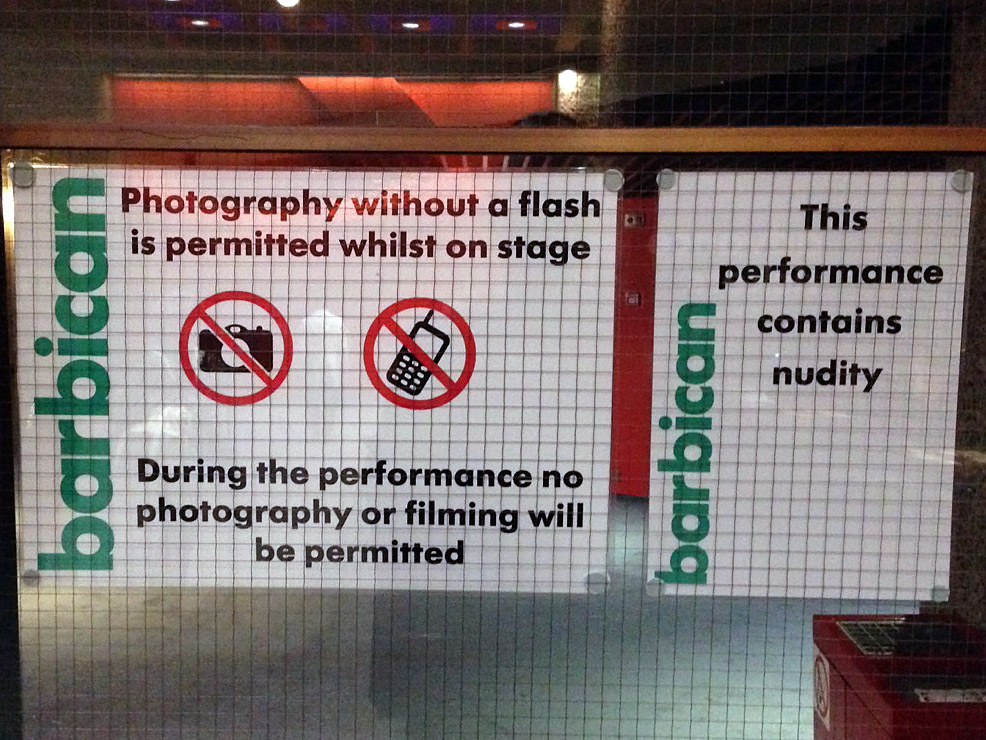
On the entrance door to Barbican Theatre for The Testament of Mary with Fiona Shaw
And, perhaps the theatre needs to accept some responsibility for setting the guidelines and then enforcing them. Big no photography signs obviously aren’t working, and I didn’t see a single member of staff talk to anyone who was chatting, texting or photographing at any time during the performance.
Let’s not be snobby and exclusive about the theatre; it’s a living art-form not a stuffed museum exhibit. Everyone should feel relaxed and welcome, and the actors need audience engagement and interaction. At appropriate times, at specific types of show, it’s fine to be more relaxed and even a bit raucous.
But let’s not be selfish, rude and distracting either. And never feel it’s OK to look at your brightly-lit mobile screen in a darkened theatre. Otherwise, I’ll have to send my son to tell you what’s what, after the show.
Scattered throughout the article are photos from my No Photography Signs Tumblr. Most were taken with full permission but occasionally I get impatient (with pointlessly officious bans on photography), especially in galleries; I’ve been asked to leave quite a few galleries.
